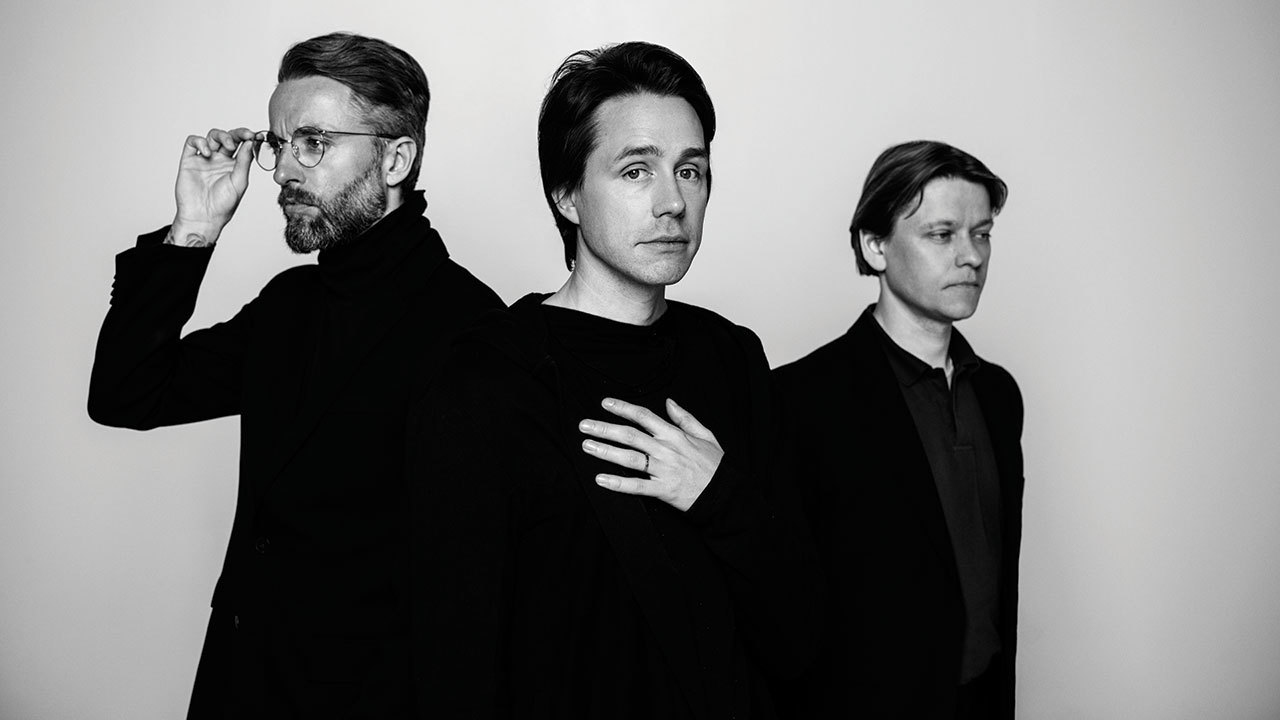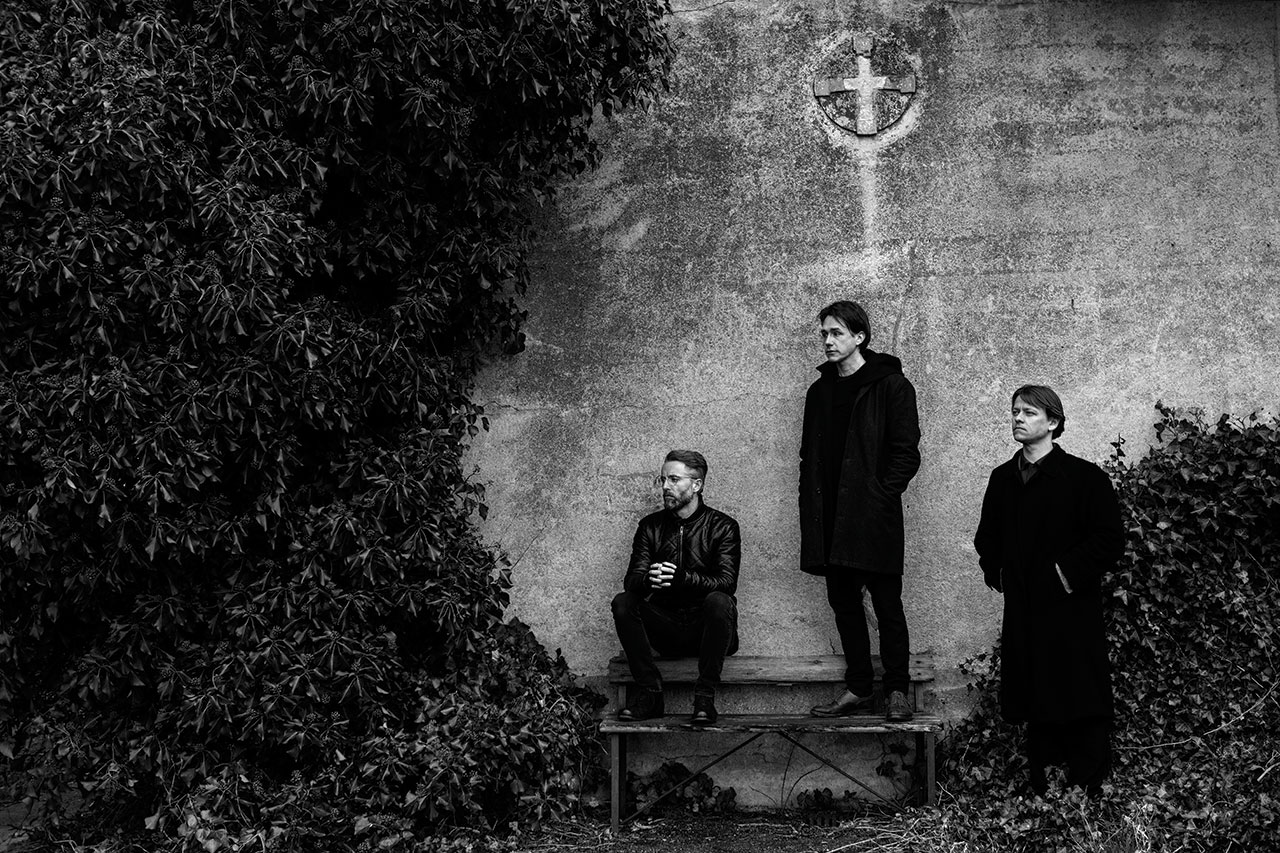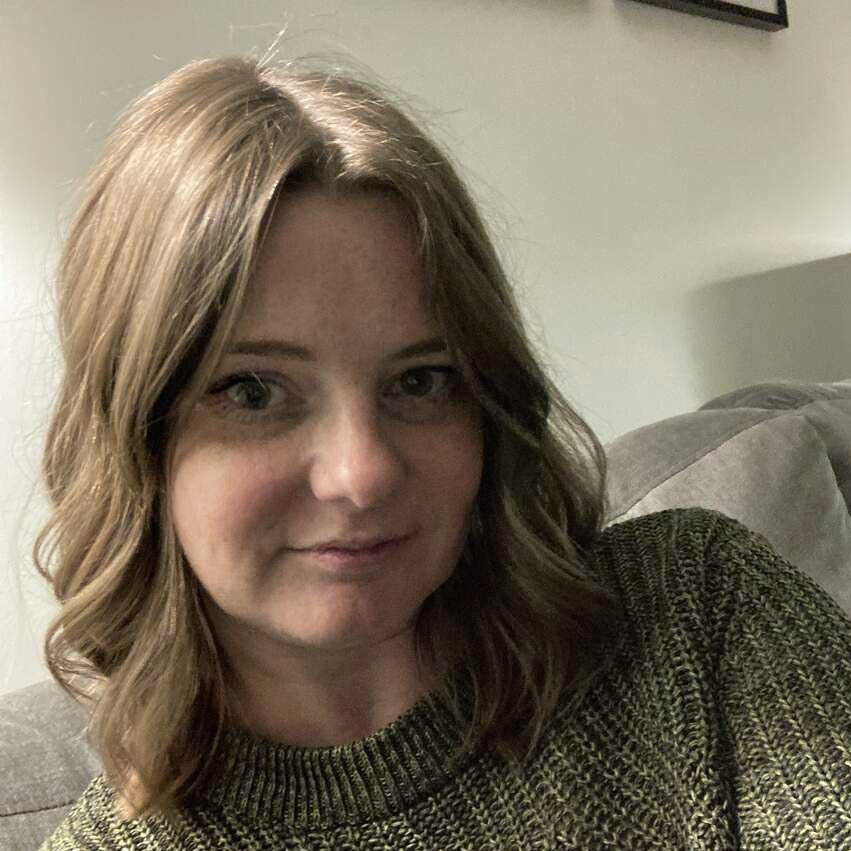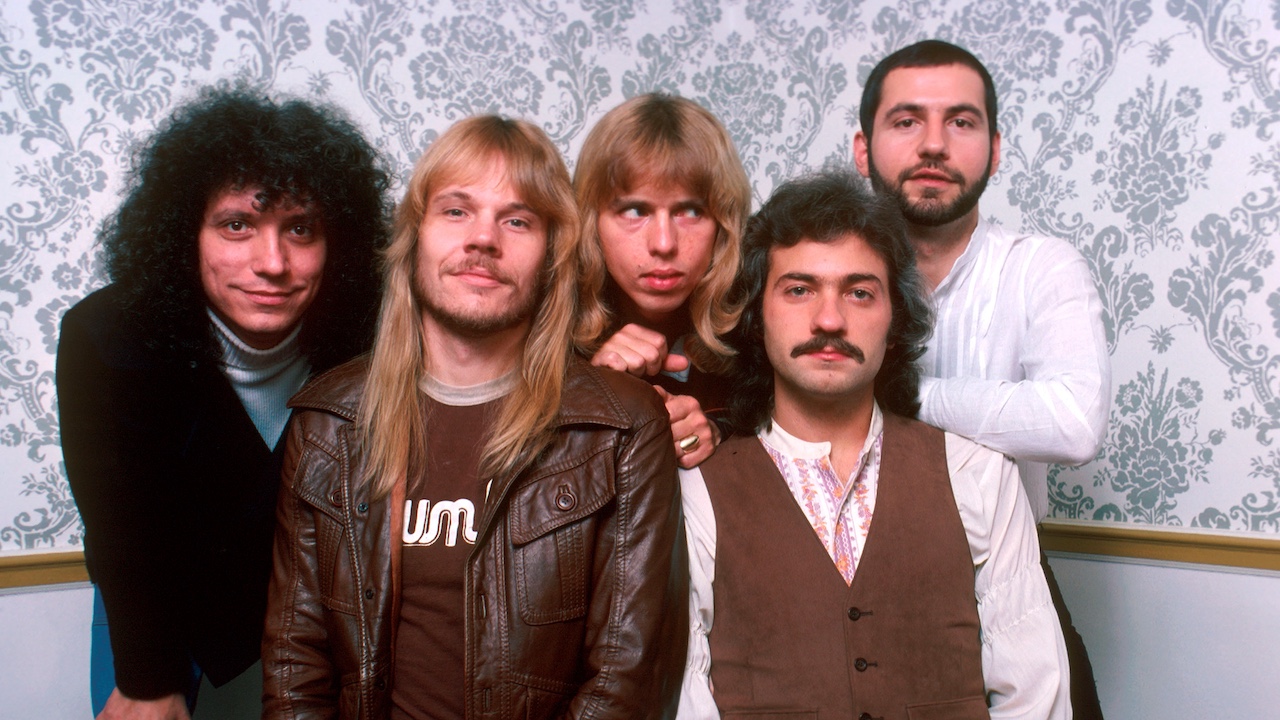Danish alt.rock collective Mew on the power of blending art and music
Mew have been dazzling music fans of varying genres since 1995, and now they’re releasing album number seven. They discuss their love of storytelling and progressive rock

If you walk down to the waterfront at the Langelinie promenade in Copenhagen, you’ll find a statue of a mermaid perched upon a rock, gazing longingly towards the shore. The bronze Little Mermaid sculpture, created in 1913, is a much-loved tribute to one of Denmark’s most celebrated sons, Hans Christian Anderson, the author whose fairy tales are so deeply ingrained in all of our childhood memories. They cross generations and national boundaries to form a shared point of wonder and magic, with a strange and sometimes scary heart to them.
The Little Mermaid, The Emperor’s New Clothes, Thumbelina, The Snow Queen, The Princess And The Pea and The Ugly Duckling: each and every one of them as familiar as the chubby hands you held the books in as an infant. Peel away the layers and there was a disturbing darkness to these childhood classics – with their curses and spells, pain, longing and fallen pride – that hinted at adult tribulations just waiting around the corner.
Copenhagen band Mew cast a similar spell to that of their national hero, at first seeming warm and beautiful, but the closer you look, the more jagged edges you’ll find. Their breakthrough third album, 2003’s Frengers, may have taken them out of their hometown and into the hearts of alternative indie fans the world over, but songs like She Came Home For Christmas, a gorgeous, theatrical but deeply disturbing tale of abuse (with a video featuring a princess, a bear, an evil fairy and magical tears) marked them out as fine storytellers indebted to the myth and legend of their Scandinavian roots.
“Our music does have a storytelling quality to it,” agrees frontman Jonas Bjerre, as the band prepare to release their new album Visuals. “It’s maybe hard to pin down exactly, but it has the feeling of storytelling. The thing about lyrics to me is they come about quite fast as we’re making the song and they kind of just float out of me, and they’re like little images, glimpses of something.”
Progressive music was an early source of inspiration for Jonas. He grew up obsessed with Kate Bush: “She was kind of my first crush when I was a kid,” he says. “I still think she’s amazing, a brilliant artist. She creates a whole reality, a whole different universe in her songs. That’s something I think we all aspire to do.”
Soon he diverged into alternative rock when Nirvana, Pixies and My Bloody Valentine came along and broke all the moulds, before coming back into the fold with Genesis’ The Lamb Lies Down On Broadway as the band were making Frengers. Their 2005 album And The Glass Handed Kites, meanwhile, was a hugely ambitious piece, a 54-minute continuous suite that required the listener to set aside an hour to fully immerse themselves in its fantastical world.
“I feel honoured that some people consider us at least partly prog,” Bjerre says. “The thing I like about progressive rock is the inventiveness. Where people are going, ‘We don’t have to have a verse, chorus, verse.’ It can be a journey, sort of like flying over distant landscapes, not knowing where you’re going to end up. That’s what I really love about progressive music, is that it is progressive – it’s not formulaic in the way that most music is. The Lamb Lies Down On Broadway is probably one of my favourite albums of all time. It’s really goosebumps all over.
Sign up below to get the latest from Prog, plus exclusive special offers, direct to your inbox!
“But I never felt like they were show-offs. It was just about the compositions and the weird world they created, and that’s the most exciting thing to me.”
The band – Bjerre, bassist Johan Wohlert, drummer Silas Utke Graae Jørgensen and guitarist Bo Madsen (who left the band in 2015 after 20 years’ loyal service) – formed on a whim at school. They were an insular group who came together with a shared desire to explore all areas of creativity, be it dreaming up songs or heading out into the night to make weird little movies together. It could have gone in any direction – Bjerre says he’s written fiction (rejected by publishers, sadly), and would probably have become an animator if he hadn’t fallen into music. Either way, they always shunned the influences of their peers.
“There are lots of these great places in Copenhagen where you can get a practice space cheaply and then you share it with other bands,” he says. “But we always found some weird factory loft or somewhere that was away from everything, so we were left to our own devices. I think that was good in some ways because we sort of developed our own musical language.”
It was a smart move, because Mew sound like no one else. Lush and dramatic, but with towering melodies and epic choruses built to be sung along with, they’re given an other‑worldly edge thanks to Bjerre’s unique vocals – a high, alien sound that seems genderless and ageless, emotion-drenched but distant, yet oddly comforting in its mournfulness. Disappointingly, he wasn’t granted his powers with a witch’s magic spell, but rather as a more mundane response to necessity.

“When I was at high school I remember my music teacher tested us all, and he said that I was a bass singer because I could reach very low on the scales,” he says with a laugh. “He didn’t know what he was talking about. But the reason that I started singing high was really quite accidental. We didn’t have a proper practice space, and we didn’t have a PA, so I just put my mic through my guitar amp. And it’s a very mid-rangey spectrum coming out of an amp like that, so to be able to even hear myself I had to reach for really high notes, otherwise it just drowned in the sea of guitars.
“Back then it was very distorted, very post-rock,” he adds. “So I sang really high to be able to convey the melodies in there and that just became part of the songs. It’s just so grown into me now. I try to challenge it a little bit, but I always end up singing quite high on the albums.”
They’re challenging themselves again on Visuals. Arriving just over a year after 2015’s +- (which reintroduced Wohlert back into the band after his departure in 2006), it’s the first time they’ve trusted themselves to work quickly – previously albums have had a gestation period of several years. You could hardly call the result ‘punk’ in its relatively speedy arrival, but it is one of the most instantly accessible records the band have made to date.
“I think we wanted to challenge ourselves in a different way – we didn’t want it to be a mathematical, difficult record,” says Bjerre. “It was more about conveying the feelings of the songs. A lot of the songs are quite weird, but maybe in a different way to what we’ve done before. We didn’t set out to make a pop record, but it almost feels like a pop record to me, within our framework.”
Pop is very much a relative term, so don’t panic, long-time fans, they haven’t turned into One Direction. Parts are slightly more raw than we’ve known before – particularly on Ay Ay Ay, which is basically the demo version “done on a crappy microphone in a big hall” because they never managed to recapture the crackling chemistry of that first version – but it’s still recognisably Mew. And while in the past they’ve gone in with grand concepts about the lyrical and compositional make-up of their record, this time they’ve smashed down a creative wall and approached it, as the title suggests, visually. How it looked came before how it sounded.
“Yeah. We’ve always had visuals for our shows and it’s always been a big part of the band,” says the vocalist. “But the visuals always came about after the song, I’d close my eyes and picture things. But on this one we had the titles worked out early, and that’s also unusual for us – we usually struggle until the last moment and then come up with something at the 11th hour because we have no more time. But this one we kind of knew. I would think out the songs with imagery, picture where the song took place. I think that was really inspiring to work like that. It was like a soundtrack to a movie in your head.”
His current visual obsession is with kaleidoscopes, as you’ll see if you check out the recently released clip for the catchy 85 Videos, a trippy, neon affair that somehow manages to place itself as part Blade Runner, part voodoo ceremony. For Mew, the umbilical connection between music, art, drama and cinema, the desire to tap into the strengths of every art form there is available to them, is as vital a tool as their guitars. It’s all there to be plundered, and nothing is off limits.
“I like the experiences where it’s a mixture of things,” says Bjerre. “I mean there are some groups that do that really creatively, on a whole different plane. I went to see a theatre show in New York a few years back that really blew my mind. We had no idea what it was going into it. They put a mask on you and you get separated from the people that you’re with, and you’re just thrown into the play and you’re part of the play. It’s really inspiring, and I came out of there feeling like, ‘Oh my God, how great is it that people would do these kind of things that you would not expect?’
“And I feel the same about music. I love music most when it does something unexpected. I love it when you can have that feeling that something really took you by surprise and kind of fooled you, invited you into it and then you get taken aback. That’s a great thing. For me, music is about being as inventive as you can be within a certain framework. Because there’s no joy in doing the same thing over and over. You want to keep pushing your own boundaries, trying to find your own new ways of doing things.”
Mew are touring the album in the UK in May. They’re one of those bands that may never be destined for stadiums – their innate, proggy weirdness means the most tediously cool sections of society are unlikely to fully embrace them any time soon – but their following is tirelessly passionate. The intense, emotional reaction to Mew’s strange rock fairy tales takes on a ritualistic quality that catches even their creators by surprise.
“Sometimes you really reach someone in a deep way and it means so much to people and you’ve really got to respect that,” says Bjerre. “Sometimes it can be scary; sometimes it really reminds you why you’re doing it in the first place.”
The world of Mew is a strange one. It’s a place where your wildest imagination can take flight, where dark stories spring from a flicker of memory or a glimpse of gold nestled within the mundane. For Jonas Bjerre, it’s a way of life that means celebrating wide-eyed creativity in all its forms, nurturing it rather than allowing it to be strangled and killed by the demands of the modern world.
“The best way to find happiness is to realise that you’re lucky with what you have and feel grateful for it, and I do that a lot when I’m on tour, when I wake up in some strange hotel,” says the singer, who is looking ahead to a year on the road.
“And you know, there are tough parts. Being away from friends and family and all that. But I really wouldn’t change a thing. It’s my place in the universe I think, without sounding too grandiose about it. It’s where I belong. It’s true what they say: it’s the journey, not the destination. The journey is still ongoing for us, and it’ll continue until we die.”
Visuals is out on April 28 via Play It Again Sam. See www.mewsite.com for more information.
Emma has been writing about music for 25 years, and is a regular contributor to Classic Rock, Metal Hammer, Prog and Louder. During that time her words have also appeared in publications including Kerrang!, Melody Maker, Select, The Blues Magazine and many more. She is also a professional pedant and grammar nerd and has worked as a copy editor on everything from film titles through to high-end property magazines. In her spare time, when not at gigs, you’ll find her at her local stables hanging out with a bunch of extremely characterful horses.

